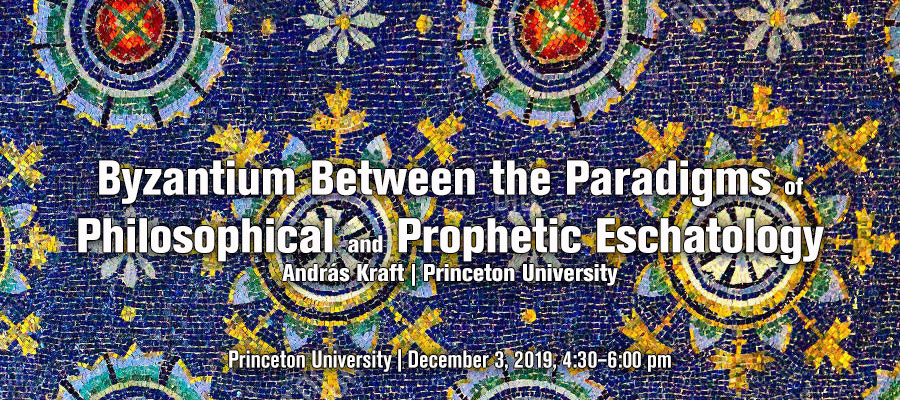Byzantium Between the Paradigms of Philosophical and Prophetic Eschatology, lecture by András Kraft (Princeton University), Princeton University, December 3, 2019, 4:30–6:00 pm
Respondent: Emmanuel Bourbouhakis, Classics
The middle Byzantine philosopher John Italos (d. after 1082) wrote a series of short expositions on personal eschatology, which he addressed to Emperor Michael VII Doukas and his brother Andronikos respectively. In these treatises Italos discusses the thorny issue of the postmortem fate of the soul. While he explicitly upholds the doctrine of the bodily resurrection, his wording and line of reasoning suggest that he, in fact, taught an eventual spiritual resurrection and the universal restoration of all (apokatastasis). Italos’ reputed teachings were condemned in 1082. Among the condemnations were various eschatological views that Italos had used in his arguments. The trial was imposed upon Italos at the behest of Emperor Alexios I Komnēnos (r. 1081–1118), who broke with a number of his predecessors’ customs. Most notably, the philosophical discourse that was patronized by the Doukid dynasty (1059–1081) was disfavored, as it contradicted Alexios’ appreciation of eschatological expectations. We know from historiographical testimonies that Alexios was assigned messianic aspirations and that his contemporary counterparts abroad nurtured similar ambitions. Furthermore, the remarkable hiatus of apocalyptic narratives from Alexios’ reign indicates effective imperial censorship that vindicated regulatory monopoly on prophesy-making. This and other indirect evidence suggest that the beginning of the Komnēnian restoration was inaugurated by a paradigm shift in eschatological thinking: the philosophical discourse on universal redemption was repressed in favor of the apocalyptic paradigm of retributive justice.
András Kraft studied Philosophy at Eötvös Loránd University and Medieval Studies at Central European University. Before joining the Seeger Center, he was an Assistant Professor of liberal arts at the American University of Central Asia. His research specializes in Byzantine intellectual history with a focus on philosophical and prophetic literature.
